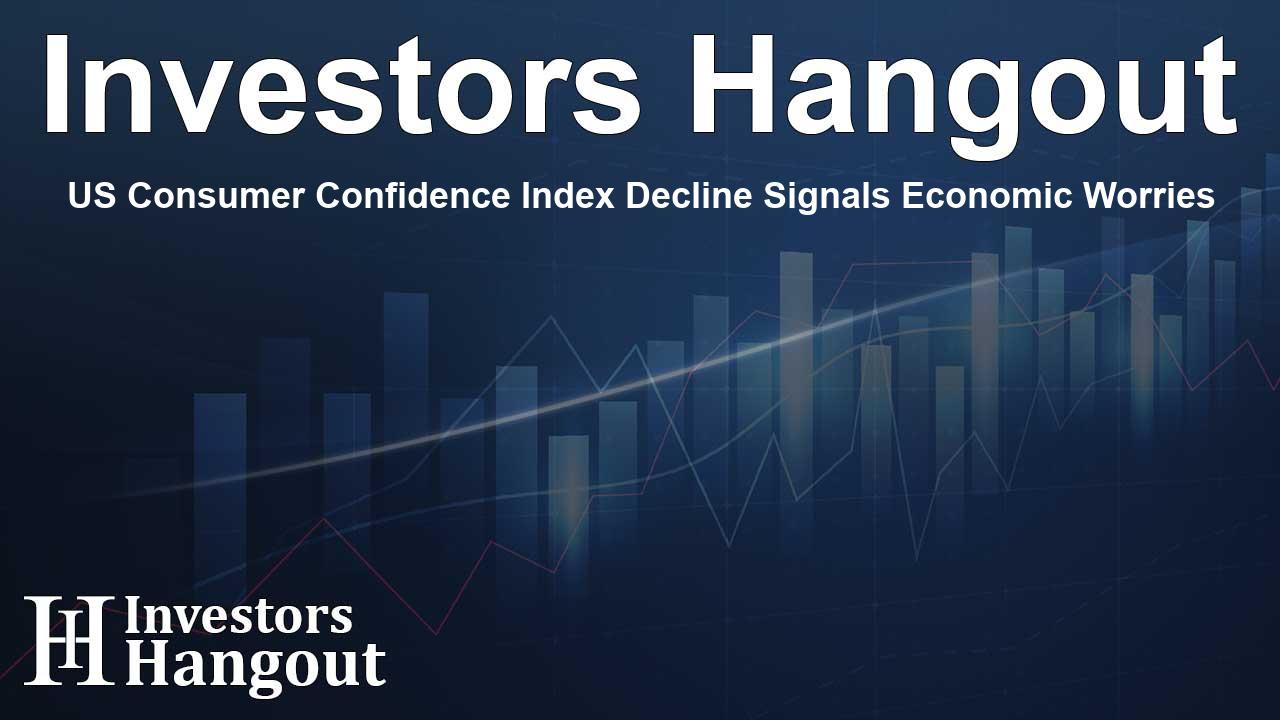US Consumer Confidence Index Decline Signals Economic Worries

US Consumer Confidence Index Shows Signs of Weakness
The latest Consumer Confidence index from the Conference Board has revealed a notable dip, with current readings settling at 104.7. This figure falls significantly short of the anticipated 112.9, highlighting a growing caution among consumers.
Economic Implications of the Decline
Consumer sentiment plays a pivotal role in shaping economic dynamics, and this downturn is troubling for the future of consumer spending in the US. The index's previous score was 111.7, indicating a potential shift towards a more conservative outlook among Americans.
Understanding the Consumer Confidence Index
The Consumer Confidence index serves as a critical leading indicator for predicting consumer spending behavior. Typically, a robust reading suggests increased optimism, leading to heightened spending and positive economic growth. In contrast, a decline implies a wary consumer base, which may lead to decreased spending over time.
Impact on the US Dollar
A lower reading, such as the one recently published, could pose bearish implications for the US dollar. Strong consumer confidence numbers generally bolster the currency, suggestive of a healthier economy, while poor results often lead to negative sentiment surrounding the dollar.
Reactions from Economists and Policymakers
This surprising downturn in confidence will undoubtedly capture the attention of economists and decision-makers. The implications of a softening consumer sentiment could influence fiscal and monetary policy decisions as authorities seek to navigate economic stability and growth.
Business Strategies in Response to Consumer Sentiment
Furthermore, businesses across various industries may reassess their strategies according to evolving consumer expectations. Understanding shifts in sentiment can provide companies with a competitive edge in adapting to market dynamics.
Looking Ahead: Economic Outlook
The recent drop in the Consumer Confidence index invites concerns regarding consumer spending and the broader economic landscape in the US. However, it's essential to remember that this is merely one aspect of the complex economic picture, with numerous factors influencing the overall state of the economy.
Frequently Asked Questions
What does the Consumer Confidence index measure?
The Consumer Confidence index gauges consumers' perceptions of the economy, including their willingness to spend, which is vital for economic activity.
Why is a higher Consumer Confidence index important?
A higher index usually indicates optimism among consumers, suggesting increased spending, which can drive economic growth.
How does consumer confidence affect the US dollar?
Consumer confidence impacts the US dollar because stronger confidence can lead to greater spending, reflecting positively on the economy and the currency.
What are the implications of declining consumer confidence?
Declining consumer confidence may lead to reduced consumer spending, which can negatively affect overall economic activity and growth.
How do businesses respond to changes in consumer sentiment?
Businesses may adjust their strategies, products, or marketing in response to shifts in consumer sentiment to better align with market demands.
About Investors Hangout
Investors Hangout is a leading online stock forum for financial discussion and learning, offering a wide range of free tools and resources. It draws in traders of all levels, who exchange market knowledge, investigate trading tactics, and keep an eye on industry developments in real time. Featuring financial articles, stock message boards, quotes, charts, company profiles, and live news updates. Through cooperative learning and a wealth of informational resources, it helps users from novices creating their first portfolios to experts honing their techniques. Join Investors Hangout today: https://investorshangout.com/
Disclaimer: The content of this article is solely for general informational purposes only; it does not represent legal, financial, or investment advice. Investors Hangout does not offer financial advice; the author is not a licensed financial advisor. Consult a qualified advisor before making any financial or investment decisions based on this article. The author's interpretation of publicly available data shapes the opinions presented here; as a result, they should not be taken as advice to purchase, sell, or hold any securities mentioned or any other investments. The author does not guarantee the accuracy, completeness, or timeliness of any material, providing it "as is." Information and market conditions may change; past performance is not indicative of future outcomes. If any of the material offered here is inaccurate, please contact us for corrections.